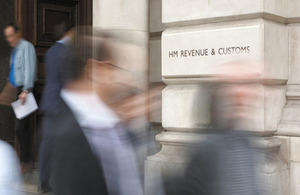Clampdown on tax avoidance on UK property
Under new regulations published today, for the first time schemes designed to get around the Annual Tax on Enveloped Dwellings will have to be disclosed to HMRC.

HMRC
Introduced in April 2013, the tax is an annual charge payable by companies that own high value residential properties. It ranges from £15,000 for a property valued between £2 million and £5 million and goes up to £140,000 for properties valued at over £20 million.
The new regulations will mean that schemes designed and marketed to avoid paying this charge will now have to be notified to HMRC.
The Disclosure of Tax Avoidance Schemes (DOTAS) ensures details of schemes designed to provide users with an unfair tax advantage must be provided to HMRC, which uses the information in its compliance work. It also helps Government consider amendments to legislation.
Penalties for not disclosing a scheme are up to £1 million and penalties for users failing to report the use of a scheme on a tax return are £100 for the first failure, £500 for the second and £1,000 for subsequent failures.
Introducing changes to DOTAS, the regulations laid today build on the work from the 2012 Lifting the Lid consultation which looked at tackling avoidance schemes. As part of the consultation, the Government proposed revising and extending DOTAS when necessary and improving the information available to HMRC.
Today’s changes add the Annual Tax on Enveloped Dwellings to the regime, where currently schemes designed to reduce a user’s tax bill for income tax, corporation tax, capital gains tax, inheritance tax, national insurance contributions, stamp duty land tax and VAT must be disclosed.
In another move to further tackle tax avoidance, promoters of avoidance schemes will now be forced to provide HMRC with details of their client’s national insurance number and unique taxpayer reference. This will make it much easier for HMRC to track down avoiders and put them under investigation.
This will also make it harder to avoid tax by using “disguised remuneration” schemes designed to avoid tax and national insurance on employment income.
Exchequer Secretary David Gauke said:
This Government has been clear – aggressive tax avoidance is unacceptable and will not be tolerated. The regulations we are laying mark a significant strengthening of the rules and build on the considerable work we have done to tackle not only tax avoidance schemes but also the promoters of these schemes.
HMRC has been well resourced to tackle tax avoidance and has made it clear that it will pursue those who attempt to avoid their responsibilities.